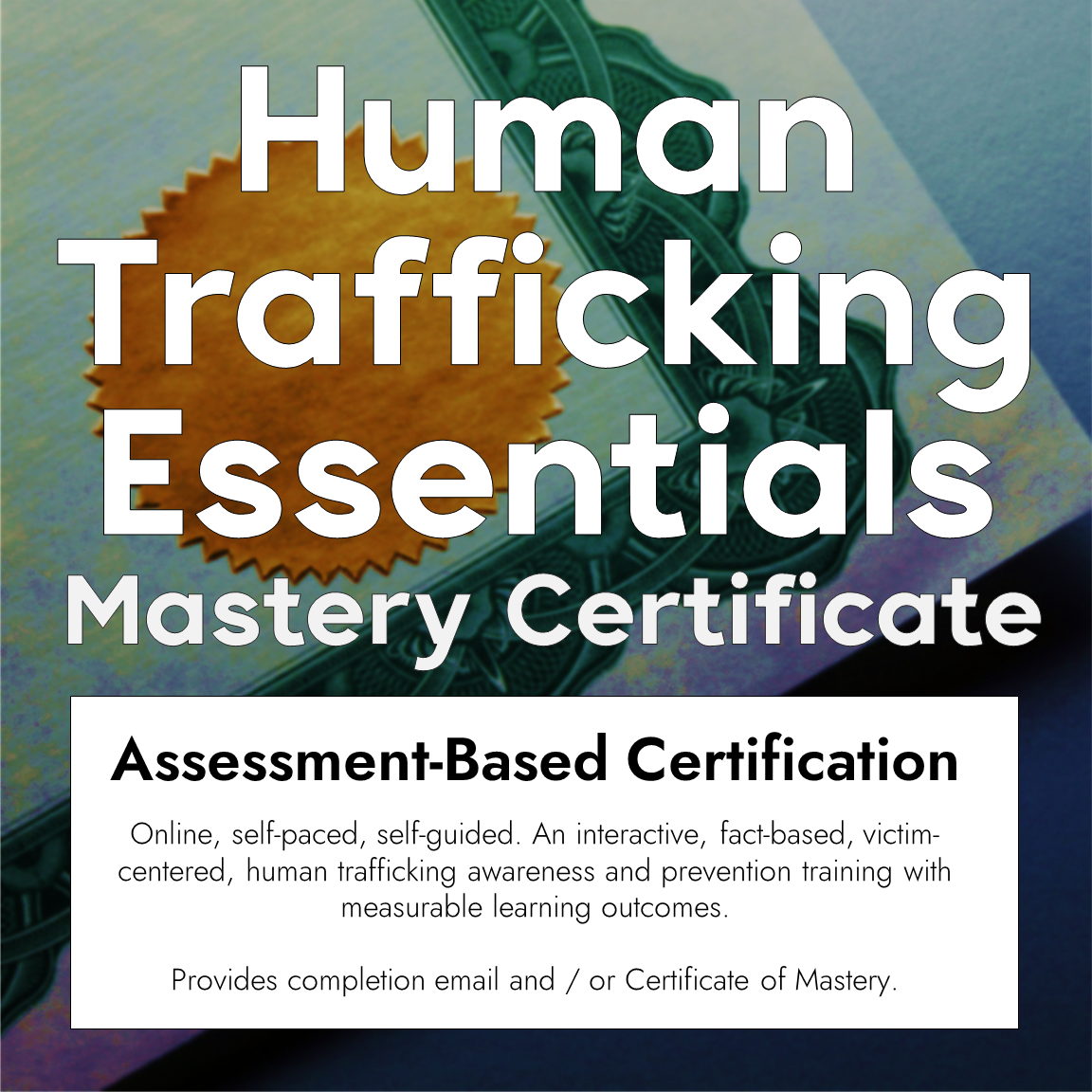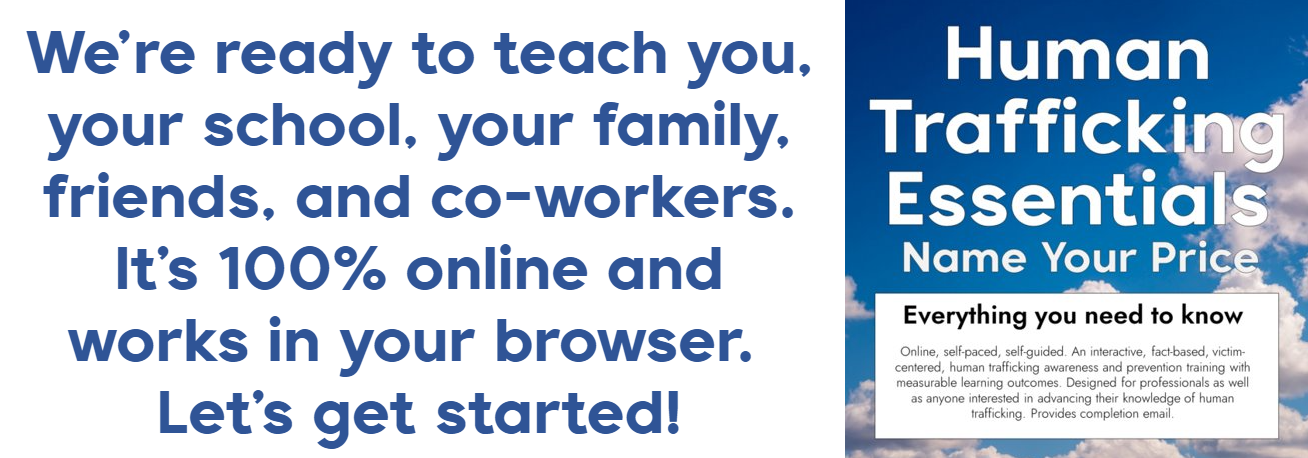Report: Increased Homeless Population More Vulnerable to Human Trafficking

Homelessness can expose people to all kinds of challenges: violence, disease, the freezing cold. Now a Colorado Project report by the Laboratory to Combat Human Trafficking has added a new danger for those living on the streets of Denver: forced labor and sex trafficking.
“Housing instability and homelessness is a top challenge,” says AnnJanette Alejano-Steele, co-founder of the LCHT, a Colorado nonprofit. “We know that keeping safe shelter and the cost of that is just increasingly a challenge, and that can create risk for being trafficked, because traffickers look for people who are just trying to stay safe.”
The 2023 Colorado Project report is based on surveys, focus groups and interviews with 383 professionals in the state who are working to end human trafficking. Based on their responses, the report, released October 19, concluded that “housing is the number-one resource needed by partnerships working to end human trafficking.”
Because human trafficking cases don't always mention whether the victim is homeless, that omission makes for “a difficult data point to connect to human trafficking cases,” Alejano-Steele acknowledges.
“It may be included in court documents or case filings, but not necessarily. Pursuing a case around human trafficking doesn't require that kind of detail,” she says. “We certainly know from our hotline that a large number of callers/texters are seeking shelter/housing assistance.”
The last time the LCHT published a report on human trafficking in Colorado was in 2019, when it noted that local efforts to stop trafficking were meeting with some success. Law enforcement agents and prosecutors were throwing traffickers behind bars, and survivors were getting the support they needed, even if convictions had recently dropped.
Four years later, the group identified a spike in the number of criminal convictions for human trafficking in Colorado. Some experts attribute the increase in convictions to an increase in homelessness, according to the report, leaving more people vulnerable to being preyed upon by traffickers.
“Traffickers pay attention to people who are looking for housing,” Alejano-Steele says. “The thing we need to do is make sure the folks in this housing space have the training so they can identify people who may be taking advantage of other residents.”
Last year, 27 sex and labor trafficking cases in Colorado ended in a criminal conviction, an increase over twenty the previous year.
The first human trafficking legislation in Colorado was passed in 2006, but convictions didn't really take off until 2014, when the Colorado Human Trafficking Council formed and mandated stronger legislation. That year, 46 sex and labor trafficking cases ended with a criminal conviction, up from just eight the previous year. But the number of human trafficking convictions dropped every year after that — until 2022.
From January 1 through March, six human trafficking cases this year ended in convictions, according to the LCHT report.
Alejano-Steele says it's important to recognize that “trafficking is a severe form of exploitation for labor, including sex, through the use of force, fraud or coercion. People can be trafficked in their own homes, by loved ones.”
While many people think human trafficking involves sex, she stresses that it also can include forced labor.
“Drawing attention to that labor trafficking side is important, because then you can start to realize it can happen anywhere. It can be happening in front of you,” Alejano-Steele says. “Look at the industries in our state: tourism, agriculture, even who are the hands behind the organic produce you're buying at the farmers' market, ranching, sheepherding.”
Even so, sex trafficking cases make up the bulk of the human trafficking cases prosecuted. Since 2014, Colorado has seen 265 human trafficking cases; of those, 257 involved sex trafficking cases, while only 24 involved labor trafficking.
What the report revealed for Alejano-Steele, she says, is a pressing need for partnerships between professionals working to end homelessness and those working to end human trafficking, to prevent people from falling for “false promises of employment” and also “help survivors who are trying to get their feet back on the ground after a harrowing experience.”
“There might be housing services for people experiencing domestic violence or homelessness, but how many beds can they allocate for trafficking survivors?” she asks. “This is one of these efforts where we absolutely need to partner between anti-trafficking folks and housing-sector professionals so we can prevent people from becoming vulnerable to false promises.”
People can report human trafficking by calling the LCHT hotline at 866-455-5075 or texting 720-999-9724. Read the Colorado Project 2023 report here.
This “Eyes on Trafficking” story is reprinted from its original online location.
Fair Use Notice: The PBJ Learning Knowledge Vault is dedicated to advancing understanding of various social justice issues, including human trafficking and related topics. Some of the material presented on this website may contain copyrighted material, the use of which has not always been specifically authorized by the copyright owner. We are making such material available in our efforts to promote education and awareness of these important issues. There is no other central database we are aware of, so we put this together for both historical and research purposes. Articles are categorized and tagged for ease of use. We believe that this constitutes a ‘fair use' of any such copyrighted material as provided for in section 107 of the US Copyright Law. In accordance with Title 17 U.S.C. Section 107, the material on this site is distributed without profit to those who have expressed a prior interest in receiving the included information for research and educational purposes. For more information on fair use, please visit: “17 U.S. Code § 107 – Limitations on exclusive rights” on Cornell Law School's Legal Information Institute.

ABOUT PBJ LEARNING
PBJ Learning is a leading provider of online human trafficking training, focusing on awareness and prevention education. Their interactive Human Trafficking Essentials online course is used worldwide to educate professionals and individuals how to recognize human trafficking and how to respond to potential victims. Learn on any web browser (even your mobile phone) at any time.
More stories like this can be found in your PBJ Learning Knowledge Vault.
EYES ON TRAFFICKING
This “Eyes on Trafficking” story is reprinted from its original online location.
Fair Use Notice: The PBJ Learning Knowledge Vault is dedicated to advancing understanding of various social justice issues, including human trafficking and related topics. Some of the material presented on this website may contain copyrighted material, the use of which has not always been specifically authorized by the copyright owner. We are making such material available in our efforts to promote education and awareness of these important issues. There is no other central database we are aware of, so we put this together for both historical and research purposes. Articles are categorized and tagged for ease of use. We believe that this constitutes a ‘fair use' of any such copyrighted material as provided for in section 107 of the US Copyright Law. In accordance with Title 17 U.S.C. Section 107, the material on this site is distributed without profit to those who have expressed a prior interest in receiving the included information for research and educational purposes. For more information on fair use, please visit: “17 U.S. Code § 107 – Limitations on exclusive rights” on Cornell Law School's Legal Information Institute.
ABOUT PBJ LEARNING
PBJ Learning is a leading provider of online human trafficking training, focusing on awareness and prevention education. Their interactive Human Trafficking Essentials online course is used worldwide to educate professionals and individuals how to recognize human trafficking and how to respond to potential victims. Learn on any web browser (even your mobile phone) at any time.
More stories like this can be found in your PBJ Learning Knowledge Vault.

